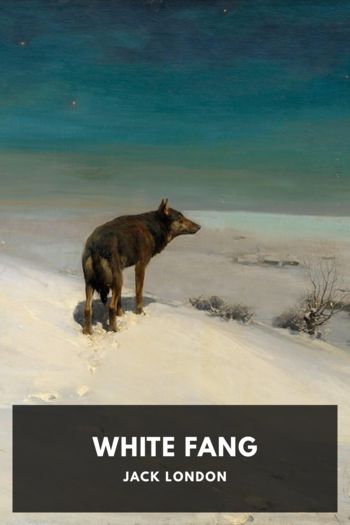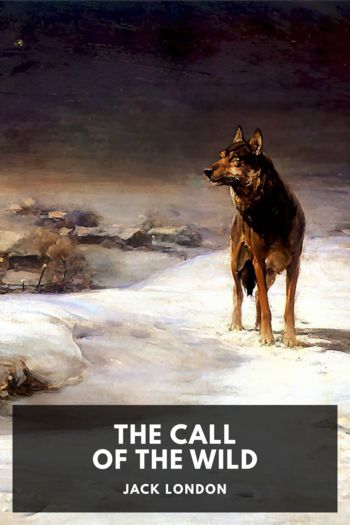Songs of a Sourdough by Robert W. Service (read after TXT) 📕

Description
Songs of a Sourdough is a collection of poems written in 1907 by Robert W. Service while he was working as a bank teller in Whitehorse, Yukon. The best-known poems are those describing life during the Klondike Gold Rush of the late 1890s, especially his ballads “The Shooting of Dan McGrew” and the “Cremation of Sam McGee.”
While some of Service’s work had previously appeared in newspapers and periodicals, Songs of a Sourdough was his first book. Publishers initially questioned the “moral tone” of the work with its bawdy poems depicting not just the hard lives and isolation of Yukon prospectors but also the drinking, gambling, and prostitution that was prevalent in Dawson City. However, despite these reservations, the book was an immediate success. In Canada, there were ten printings and more than 12,000 copies sold in the first year alone. Dozens of additional printings followed in subsequent years, including editions issued in Britain and the United States.
Read free book «Songs of a Sourdough by Robert W. Service (read after TXT) 📕» - read online or download for free at americanlibrarybooks.com
- Author: Robert W. Service
Read book online «Songs of a Sourdough by Robert W. Service (read after TXT) 📕». Author - Robert W. Service
We often die with curses in our mouth.
We are wild as colts unbroke, but never mean;
Of our sins we’ve shoulders broad to bear the blame;
But we’ll never stay in town, and we’ll never settle down,
And we’ll never have an object or an aim.
No, there’s that in us that time can never tame;
And life will always seem a careless game;
And they’d better far forget—
Those who say they love us yet—
Forget, blot out with bitterness our name.
It’s cruel cold on the waterfront, silent and dark and drear;
Only the black tide weltering, only the hissing snow;
And I, alone, like a storm-tossed wreck, on this night of the glad New Year,
Shuffling along in the icy wind, ghastly and gaunt and slow.
They’re playing a tune in McGuffy’s saloon, and it’s cheery and bright in there
(God! but I’m weak—since the bitter dawn, and never a bite of food);
I’ll just go over and slip inside—I mustn’t give way to despair—
Perhaps I can bum a little booze if the boys are feeling good.
They’ll jeer at me, and they’ll sneer at me, and they’ll call me a whiskey soak;
(“Have a drink? Well, thankee kindly, sir, I don’t mind if I do.”)
A drivelling, dirty gin-joint fiend, the butt of the barroom joke;
Sunk and sodden and hopeless—“Another? Well, here’s to you!”
McGuffy is showing a bunch of the boys how Bob Fitzsimmons hit;
The barman is talking of Tammany Hall, and why the ward boss got fired;
I’ll just sneak into a corner, and they’ll let me alone a bit;
The room is reeling round and round … O God, but I’m tired, I’m tired. …
Roses she wore on her breast that night. Oh, but their scent was sweet;
Alone we sat on the balcony, and the fan-palms arched above;
The witching strain of a waltz by Strauss came up to our cool retreat,
And I prisoned her little hand in mine, and I whispered my plea of love.
Then sudden the laughter died on her lips, and lowly she bent her head;
And oh, there came in the deep, dark eyes a look that was heaven to see
And the moments went, and I waited there, and never a word was said,
And she plucked from her bosom a rose of red, and shyly gave it to me.
Then the music swelled to a crash of joy, and the lights blazed up like day;
And I held her fast to my throbbing heart, and I kissed her bonny brow;
“She is mine, she is mine for evermore!” the violins seemed to say,
And the bells were ringing the New Year in—O God! I can hear them now.
Don’t you remember that long, last waltz, with its sobbing, sad refrain?
Don’t you remember that last goodbye, and the dear eyes dim with tears?
Don’t you remember that golden dream, with never a hint of pain,
Of lives that would blend like an angel-song in the bliss of the coming year?
Oh, what have I lost! What have I lost! Ethel, forgive, forgive!
The red, red rose is faded now, and it’s fifty years ago.
’Twere better to die a thousand deaths than live each day as I live!
I have sinned, I have sunk to the lowest depths—but oh, I have suffered so!
Hark! Oh hark! I can hear the bells! … Look! I can see her there,
Fair as a dream … but it fades … And now—I can hear the dreadful hum
Of the crowded court … See! the Judge looks down … Not Guilty, my Lord, I swear …
The bells, I can hear the bells again … Ethel, I come, I come! …
“Rouse up, old man, it’s twelve o’clock. You can’t sleep here, you know.
Say! ain’t you got no sentiment? Lift up your muddled head;
Have a drink to the glad New Year, a drop before you go—
You darned old dirty hobo … My God! Here, boys! He’s dead!”
Say! You’ve struck a heap of trouble—
Bust in business, lost your wife;
No one cares a cent about you,
You don’t care a cent for life;
Hard luck has of hope bereft you,
Health is failing, wish you’d die—
Why, you’ve still the sunshine left you,
And the big, blue sky.
Sky so blue it makes you wonder
If it’s heaven shining through;
Earth so smiling ’way out yonder,
Sun so bright it dazzles you;
Birds a-singing, flowers a-flinging
All their fragrance on the breeze;
Dancing shadows, green, still meadows—
Don’t you mope, you’ve still got these.
These, and none can take them from you;
These, and none can weigh their worth.
What! you’re tired and broke and beaten?—
Why, you’re rich—you’ve got the earth!
Yes, if you’re a tramp in tatters,
While the blue sky bends above,
You’ve got nearly all that matters,
You’ve got God, and God is love.
’Twas a year ago and the moon was bright
(Oh, I remember so well, so well),
I walked with my love in a sea of light,
And the voice of my sweet was a silver bell.
And sudden the moon grew strangely dull,
And sudden my love had taken wing;
I looked on the face of a grinning skull,
I strained to my heart a ghastly thing.
’Twas but fantasy, for my love lay still
In my arms with her tender eyes aglow,
And she wondered why my lips were chill,
Why I was silent and kissed her so.
A year has gone and the moon is bright,
A gibbous moon like a ghost of woe;
I sit by a new-made grave tonight,
And my heart is broken—it’s strange, you know.
Can you recall, dear comrade, when we tramped God’s land together,
And we sang the old, old Earth-song, for our youth was very sweet;
When we drank and fought and lusted, as we mocked at tie and tether,
Along the road to Anywhere, the wide world at our feet.
Along the road to Anywhere, when each day had its story;
When time was yet our vassal, and life’s jest





Comments (0)